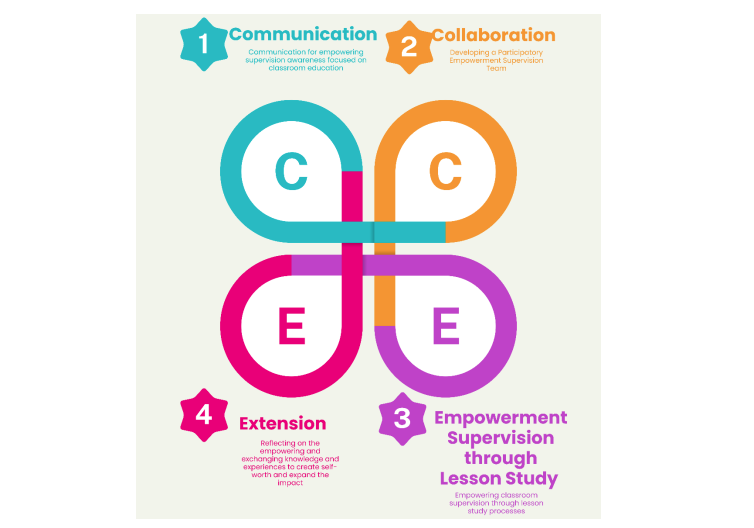Designing an Empowerment-Based Supervision Model Emphasizing Lesson Study: Insights from Kalasin Primary Education
Keywords:
Empowerment, supervision, lesson study, challenges, needs, primary educationAbstract
This study had two objectives: (1) to investigate current practices, challenges, and needs in educational administration for developing an Empowerment-based Supervision model emphasizing Lesson Study (ESLS), and (2) to design an administrative framework to support that model. Data were collected using two methods. The survey included 47 educational supervisors, 49 school administrators, and 47 primary-level teachers. The focus group discussions included 7 supervisors, 8 administrators, and 6 teachers. The instruments included a questionnaire on the challenges and needs associated with an empowermentbased, Lesson Study–focused supervision model and a discussion guide probing current practices, challenges, and needs. Quantitative data were analyzed using frequencies, percentages, means (M), and standard deviations (SD), while qualitative data underwent thematic analysis. On a five scale, respondents rated both the challenges of implementing empowerment-based supervision model emphasizing Lesson Study (LS) (M = 3.51, SD = 0.70) and their need for it (M = 3.93, SD = 0.71) as high. FGD findings emphasized the importance of collaboratively designing context-sensitive tools, plans, and evaluation criteria; integrating LS, Action Research, and Professional Learning Communities (PLC); and fostering a supportive, learner-centered environment that encourages open knowledgesharing and boosts teacher morale. Such a model is expected to enhance teacher competencies, improve student outcomes, and cultivate a sustainable culture of teamwork and PLC across the Kalasin Primary Educational Service Area. The researchers developed the ESLS, comprising of four steps (2C2E): Communication—build shared awareness of empowerment-based supervision and current challenges; Collaboration—co-develop goals, strategies, and supports through participatory, iterative planning; Empowerment via Lesson Study—implement collegial, monitored supervision that guides and values teachers; Extension—reflect, disseminate, and create feedback forums to scale successes.
Downloads

Downloads
Published
Issue
Section
License
Copyright (c) 2025 Journal of Innovative Learning

This work is licensed under a Creative Commons Attribution-NonCommercial-NoDerivatives 4.0 International License.

